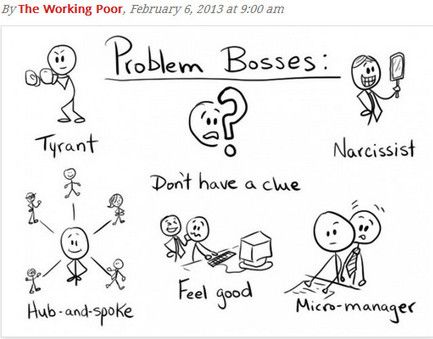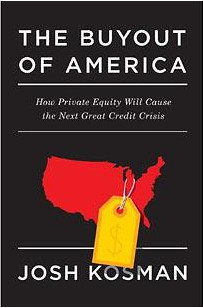 New branding on a theory with a proven track record. Daniel Goleman wrote about EQ (Emotional IQ) several years ago making the point that people need not just smarts to get ahead as in IQ but the ability to relate to others as well. In fact the EQ was more important than the IQ all things being equal. It is now as a theory moving into action and coming to real fruition with social networking and social media inside and outside organizations. Also globalization impels communications by video. The article is filled with good advice, and overview of the current situation. This continues to build a case for a good digital footprint that includes video, audio, image and content. Your first impression precedes you online and then in reality you will need to live up to it. ~~~~~~~~~~~~~~~~~~~~~~~ Why Likability Matters More at Work Likability Is More Important—and Harder to Pull Off March 25, 2014 7:03 p.m. ET, Wall Street Journal Is "Likability" is becoming a bigger factor for success at work as social networks and videoconferencing grow. The impact goes beyond a high-school popularity contest. The ability to come across as likable is shaping how people are sized up and treated by bosses and co-workers. Likable people are more apt to be hired, get help at work, get useful information from others and have mistakes forgiven. A study of 133 managers last year by researchers at the University of Massachusetts found that if an auditor is likable and gives a well-organized argument, managers tend to comply with his suggestions, even if they disagree and the auditor lacks supporting evidence. Likability is more important—and harder to pull off—on video than in person. Sometimes this can result in a style-over-substance effect. People watching a speaker on a videoconference are more influenced by how much they like the speaker than by the quality of the speaker's arguments, according to a 2008 study in Management Science. The opposite is true when a speaker appears in person. The use of personal videoconferencing is expected to grow 47% annually through 2017, according to Wainhouse Research, a Boston market-research firm. Read full article here
14 Comments
 I have read enough lately about the health benefits of standing at my desk. But, my motivation really has been because of unrelenting pain due to an accident that fractured my knee and pulled tendons and ligaments and sub-luxated my hip. Sitting for long periods of time now is simply too painful. Aside from having a hip replacement to solve the problem...they hope, I have pursued alternative solutions to aid my health in general. That got me to Rick Williams here in Santa Cruz who had been a great help. Through him I bought a Salli backless desk chair. It is really more like a saddle, giddy up! It has made a world of difference. Now I am researching a hydraulic desk that is sit/stand accommodating. I will keep you posted. Watching a client make this transition at Apple has been thought provoking. I am truly impressed how a company that values their talent is willing to do whatever it takes to accommodate an employee ergonomically. They are spending bunches more money on an adjustable desk than I am willing to do. But the investment is in improved health, productivity, lower medical expenses and time off, and high morale. I will keep you posted on the desk. Studies and articles listed on Jesse Noller's blog I found very helpful, thanks!
 I don't often post promotions of this sort, but I like this company. I have read all three of their $5.99 eBooks on Management, Leadership, and Entrepreneurship. They are a bargain packed with great advice and information. Their website, Caliper Corporation has white papers, case studies and podcasts...all for free. And the event below is free! Caliper is in Princeton, NJ. Why Women Leaders Are One of Your Greatest Talent Assets. I’d like to invite you to attend a complimentary networking and learning event we’ll be holding in Newport Beach, CA on November 7th from 8:00 a.m. to 11:00 a.m. at The Island Hotel Newport Beach on Why Women Leaders Are One of Your Greatest Talent Assets. This event will feature a panel discussion with three influential women leaders who will discuss their leadership journey as well as the challenges and successes they’ve dealt with in their careers. Also, Caliper expert Carol Chenot, VP of Organizational Development Services will facilitate further discussion by sharing the results of Caliper’s Women Leaders study, which will help you: · Ensure that gender diversity aligns with your corporate values · Build that diversity into your selection process · Understand the unique development issues that women leaders face and how can they be addressed · Learn how women in 2013 are addressing work-life balance proactively and productively. To reserve your spot and to view the agenda, click here. This will be a great opportunity for you to network with other Southern California leaders, hear the latest research, and explore practical tools for ensuring that gender diversity in your organization leads to targeted business results. Frank Costanzo Senior Vice President of Sales CALIPER Helping Companies Hire and Develop Top Performers Sloan Award Recipient for Excellence in Workplace Effectiveness and Flexibility 506 Carnegie Center, Suite 300 | Princeton, NJ 08540 | Office: (609) 524-1323  This comes as no surprise. I do a values assessment with clients to determine what has worked in previous jobs and what they want in future positions. I have seen the majority of people leave for the lack of value satisfaction primarily caused by a bad boss, carnivorous teammates, or a toxic corporate culture. It was rarely if ever the money. Money factors in leaving if they have not gotten raises in several years or been passed over for promotions. Typically people focus on negotiating the money on the way in, so they know what they are getting. They often ignore the red flags on the people and culture. _________________________________________________________________________________ Hard to believe? According to Michelle McQuaid, a world leader in positive psychology interventions in the workplace, if you feel unappreciated, uninspired, lonely, and miserable, you’re not alone. In a survey of 1000 American Executives McQuaid found a “whopping” 35 percent of Americans are happy at their job. And, 65 percent say a better boss would make them happy. Only 35 percent say a pay raise will do the same thing.........A 2009 study published by the Harvard Business Review suggested, “…the majority of people say they trust a stranger more than they trust their boss.” read more here  Understanding your salary: Are you a pork belly or a sausage? The quiz in NPR's Marketplace.org brings home the obvious truth about how to get ahead. Yes indeed, we all need to brand ourselves to stand out from all those other pork bellies. But just being a best of class pork belly isn't enough to make more money, be lay-off proof and get ahead. In today's dog eat dog world we all need to evolve into being a true sausage. Whether that is by adding special skills and knowledge to our portfolio, or gaining unique training beyond the average degrees, we need to be able to distinctly be able to separate ourselves by our uniqueness value proposition. If you don't fit into their standard, generic job descriptions you can't be pigeon-holed into a salary range. Having a career description unique to you, like a gourmet sausage, will add to your market value, the salary you can command and, certainly, the demand for your abilities in the marketplace. The quiz, by the simple comparison questions, gives you the path to follow to become a true sausage. I won't be a spoiler and list them. Click on the title at the top or here and go take it for yourself. Then figure out what you can do to improve your differentiation in the marketplace and then how to tell your story so that people get it. Email me if you have trouble: [email protected]  http://arquazuarma.blogspot.com In an interesting addendum to the article below, I was speaking with a long-time client last night who told me that all the job postings up in Silicon Valley are not as accurate as one might think in the economic boomlet going on here. Apparently more hires are being done by headhunters outside the company and internal hires inside. The postings are window dressing to satisfy government requirements and to distract competitors. I can't tell you companies names but he got it verified by insiders at former places where he has worked. I double checked and agree. Why is all the internal hiring happening? Well it's faster, cheaper and, at least in Silicon Valley, the person has been "test driven". Typically anywhere from 20to 60% new hires are contractors. When an regular hire opening comes up, then the company sources internally from its contractor and consultant pool. That's my best guess on this. The other part of using headhunters for outside, well they control the deal flow so a fire hose of applicants isn't engulfing HR. With so much good talent out there looking, they can cherry pick top candidates with much less hassle than the company's staff can. Here is an excerpt from Peter Capelli's article. He is using his gut, anecdotal, hunching as well! HR leaders tend to try to push back against the fetish in their corporations to hire from outside instead of promoting from within. A new study offers some evidence to bolster their case. By My editors always say give away the story early on, so the answer is, "no." But it requires a little more background to make the story interesting. Probably the most important development in corporate life over the last generation or so has been the decline of lifetime careers and the rise of outside hiring. The situation in many businesses now is that, when there is a vacancy, they automatically think about filling vacancies by looking outside. Internal promotions are something of a rarity. I don't have any hard evidence for this, but my sense from anecdotes is that the outside hiring trend has been driven by CEOs and other top executives who (a) if they were hired from the outside think that is the way to go for other roles as well or (b) seem to have a "grass is greener" view of external candidates, especially those who come from an admired employer. read more here This is your new blog post. Click here and start typing, or drag in elements from the top bar.
 The Labor Market Bites Chinese Factories As retention of factory workers becomes a problem for companies in China, wages and benefits are increasing. But employers still face a labor shortage -- and their potential responses to it may have big implications for China and the rest of the world. By Peter Cappelli the George W. Taylor Professor of Management and director of the Center for Human Resources at The Wharton School. Read entire article This fascinating article reiterates some of the themes I have blogged about concerning the global economy. The free market for wages and labor has finally arrived in China. Coming back from Spring Festival, workers are delaying their return to shop around among factories for the highest salary and best perks. Foxconn, Apple's i-everything manufacturer, has announced wage increases that bring the Chinese factory worker on par with their counterparts in Mexico. This is coming faster than I expected in terms of a rising tide raising all boats (countries) closer to wage parity. And this will eventually budge the USA off the salary sandbar where wages have been moored for more than a decade of steady declines. Cappelli expresses hope that this turn of events will help usher in modern management practices into China such as employee retention. Wow! I never thought that I would mention that and China in the same sentence. This all bodes well for long term technology manufacturing coming back to the USA with the rising wages and costs of fuel driving that return. Steve Jobs was wrong on that one. On the other hand, there is a glut of new college grads without employment opportunities as they lack experience and training. They might be potential converts over to factory jobs according to Cappelli. However the increasing number of college grads in China will apply more competitive pressure to that same demographic sector here in the USA. Once again, this is another action call to new grads in the USA to gain internship experience, add to their portfolio of marketable skills, learn languages and build a career sustainable network to launch them well. Companies in the USA, especially the big dogs, the global multinationals need to develop immediate contingency plans to secure ongoing stable cost of goods produced including labor costs. Short-term Vietnam, other Asian nations, or Latin America will provide those options. However, long-term might look like North Dakota next to that tar sands oil pipeline. Fuel and supply chain costs to deliver to markets and cost of labor will be the deal makers or breakers in the next 5 years.  Private Equity firms own companies that employ 1 in 10 employees in the USA making them the nation's largest employer. They own across all sectors including Harrahs, Hostess, Clear Channel, Energy Future Holding Company, AMC Movies. How did the protestant work ethic of Sweat Equity get replaced by the Blood Equity of the leveraged buy-out? No value is created, other people's money is used to buy companies and the resulting profits are gained by corporate dismemberment, divestiture, and downsizing. This is the premise a new book by Josh Kosman, a veteran financial reporter and the author of The Buyout of America, How Private Equity is Destroying Jobs and Killing the American Economy. There is no point in turning this into a debate about the function of private equity given that it is now a phenomena that is well integrated into the warp and weft of the financial landscape in America. However, it is always wise to explore the career possibilities this portends for professionals and executives. What are the opportunities? Start-ups What are the employment opportunities that present themselves? Well, for starters, private equity firms have become very involved in start-up investments. Start-ups have always been the domain of the Venture Capital firms. But they have been hard-pressed to fund new ventures in the past several years. They lost investors initially after the crash and then they have been preoccupied with keeping their current farm of companies afloat. Private equity offers an alternative funding source for budding entrepreneurs for long-term funding. _The Mountain Dew soft drink brand dissolved a legal challenge from a customer who claimed a mouse was found in his can of the "Dew". The company argued that would not be possible as their product would have dissolved the mouse in less than a week. Coca Cola has the same reputation with pennies.
This does not explain why I continue to drink this stuff but it does make an analogy to the act of appreciating. When we appreciate and acknowledge others it has the same corrosive effect on rancor, resentment and grudges as the dissolving of a mouse in a cola can. Appreciation dissolves low morale, under performance and obstructions inside a company. This article in the Harvard Business Blog describes this in more detail. One quote sums it up how appreciation is an antidote to a toxic organization: "The impact of negative emotions — and more specifically the feeling of being devalued — is incredibly toxic. As Daniel Goleman has written, "Threats to our standing in the eyes of others are almost as powerful as those to our very survival." Read the entire article here.  _Being unemployed at the C-level can be the kiss of death. Of course, I have been accused of exaggeration and hyperbole, but not in this case nor by executives in that situation. They tend to confirm that finding a new similar position can be seemingly an insurmountable challenge. I am not referring to the nose-bleed section of CEOs that collect a king's ransom in severance after they are let go such as the CEO's of HP, Burger King and New Yorks Bank Mellon. They can afford to retire or buy their own company. The early (50 something or younger) CEO or c-level executive is usually not in that position. The serial CEO, CIO, CMO needs the next opportunity as much as wants it. How do you continue to look viable after losing a C-level job and better position yourself for a new opportunity? It depends on your net worth and network. Some of the ideas suggested here require significant capital while others rely on a substantial Outlook database of connections. Your age and geographic location can be a determining factor as well. Obviously the ideal scenario is a job lost due to an M&A or buyout with no negativity that trails after you. The biggest pitfall with that scenario is that it happens often in a sector where acquisitions are driven by industry commoditization. Thus, executive career options are limited going forward as the positions are correspondingly eliminated as well. And you can't count exclusively on executive search firms despite prior placements through them. Many executives report that search consultants unfortunately cannot consider them or do so as a last resort because typically their clients are expecting that the position be filled by a candidate who ideally matches all requirements, including current employment. However, if you still want skin in the game and crave the next challenge of running an organization, then here are potential strategies to pro-actively, and as triage, mitigate the damage of a lost C-level position to your career. Be on Boards You can't do this soon enough in your career. Start early and at lower levels to work your way up while you pick up valuable networking contacts along the way. Don't wait to be CEO to entertain the idea of a board-level appointment. Many start-ups, and small companies seek out top executives across multiple business sectors to fill their board positions. Typically, these are paid in stock vs stipend or salary. Board positions are worthy to assume a greater role at the top of your CV to fill in for a current lack of employment. The network derived from it will help open doors for your next opportunity as a board member or executive. Found Your Own Company or be a Serial CEO Serial CEOs actually are plentiful in the world today. The magic ingredients to making that happen are an outstanding network of colleagues who help to open doors. There must be available doors to open which requires a growing not contracting sector. Lacking that, the ability to expand beyond your original sector and move into adjacent industries is crucial. A key to staying relevant, current and therefore, employable is your willingness to expand beyond a sector comfort zone to take on challenges in affinity and tangential sectors. The other piece is the ability to build a case and sell yourself into that sector when you don't have the luxury to buy your way in. Try Politics Running for office or actively working to elect a successful candidate can provide new career stability. You may luck out get elected and be on a secure career track for at least the duration of the elected term. At the minimum, the visibility and connections you will have gained from the effort may enable a government appointment at the state or federal level to head up a commission, committee, or even be a diplomatic envoy. Once any kind of government experience is secured by appointment or election, leveraging that back to the business world is an easy step. Think Al Gore. Start an NGO During the dot.com crash, a top executive founded a weekly lunch group for fellow unemployed executives to keep him company. Attendance grew with a corresponding website, e-groups, corporate sponsorship and incorporation. He is now the salaried executive director of this well-established NGO. Of course it is not the money he had before but it fits his situation in life now. Another colleague readily tells the story of how she founded a women's professional association during the downturn that gave her a great network, and helped keep her niche search firm going. Become a Philanthropist If you leave with a small golden nest egg, then setting up a little foundation as a replica to the Bill and Melinda Gates Foundation would be in order. Beginning with your own money can be a small capitalization when you reach out to the likes of a Warren Buffet-types to support the endeavor. This would not only do good in the world but provide job security indefinitely for you as the head of the foundation. Be an Author You don't actually have to write the book as ghost writers have a purpose in life. But, authoring a topic that both is timely, attention-getting, and paves the way for a new opportunity is a good way to spend time during a search. Book tours have an amazing effect on leveraging your network, creating visibility and building credibility. You become an instant thought leader and can at least raise substantial consulting and presentation fees. There is no easy panacea to unemployment at the C-level. The search for a new opportunity is long, very long, with available openings less abundant, and the competition fierce. It demands of you the openness and flexibility to try new strategies and tactics, and the willingness to sometimes put aside your ego to think beyond titles. Most of all it requires taking stock of your dreams, goals and track record to envision a new future. If you are ready and willing to make a serious career move and not look back to the C-suite, then some of these ideas will suit you well. _Below is an extract from the Forbes article, " This One Leadership Quality Will Make or Break You". From the perspective of managing your career, this message resonates as well. Too often, we expect that all good things will come to us out of a expectation of deservedness.
These traditional axioms have embedded in them an expectation of deserving or being entitled: if we study hard, get good grades, work hard, meet our goals and objectives, dot the "i's" and cross the "t's" then great opportunities and career success will come to us. It is difficult to believe that there is an expectation of entitlement in those beliefs until for some reason they are not fulfilled. The shock of realization arrives when we find that exemplary performance is simply insufficient. Nowadays that can often be the case. In Lewis Carroll's children's story, "Through the Looking-Glass", when Alice was running with the White Knight through the woods, she asked him why they were running. His puzzling reply was that running was done to stay in the same place and to get anywhere they needed to run twice as fast. The essence of pursuit is to not expect that benefits will come to us if we do the right things. They don't anymore. There is too much competition for job openings, promotions, and opportunities. We need to be in active aggressive and continuous pursuit of our dreams and desires. We need to do it purposefully, with focused intent, and clear deliverables in mind. It is an interesting article: One of the most often overlooked aspects of leadership is the need for pursuit. Great leaders are never satisfied with traditional practice, static thinking, conventional wisdom, or common performance. In fact, the best leaders are simply uncomfortable with anything that embraces the status quo. Leadership is pursuit – pursuit of excellence, of elegance, of truth, of what’s next, of what if, of change, of value, of results, of relationships, of service, of knowledge, and of something bigger than themselves. Smart leaders understand it’s not just enough to pursue, but pursuit must be intentional, focused, consistent, aggressive, and unyielding. You must pursue the right things, for the right reasons, and at the right times. Perhaps most of all, the best forms of pursuit enlist others in the chase. Pursuit in its purest form is highly collaborative, very inclusive and easily transferable. Pursuit operates at greatest strength when it leverages velocity and scale. Read more at Forbes.com |
Categories
All
Archives
May 2019
Licensed by CC-by-SA
|